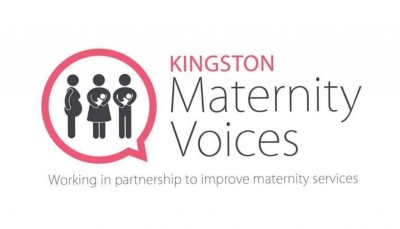Neurodiversity information for parents and young people
Premature labour (also called preterm or early labour) means going into labour before 37 weeks. After this point, your pregnancy is classed as full term.
Call the maternity helpline
Call the maternity helpline straight away on 020 8934 2802 for advice if you think you may be going into premature labour. They will usually tell you to go straight to hospital, and they may send an ambulance for you.
Signs of labour
If you have any of the following symptoms, call the maternity helpline straight away, because you could be in labour:
- regular contractions or ‘tightenings’
- period-type pains or pressure in your vaginal area
- a ‘show’. This is when the plug of mucus that has sealed the cervix during pregnancy comes away and out of the vagina
- a gush or trickle of fluid from your vagina. This could be your waters breaking
- backache.
You may have some signs labour has started, but not others. For example, your waters may have broken but with no contractions, or you may have contractions but your waters haven’t broken.
It is very difficult but try not to panic. In 7 out of 10 cases, the symptoms of premature labour go away, and women give birth at full term.
More than 9 out of 10 women have still not given birth 2 weeks after having these symptoms.
Report immediately
Tell your midwife or hospital staff immediately if:
- you are bleeding
- your baby is moving less than usual
- your waters have broken and they are smelly or coloured.
Braxton Hicks
Many women experience ‘Braxton Hicks’, sometimes known as practice contractions. These can become quite strong during the last three months of pregnancy.
It is easy to mistake them for real contractions. They are usually not painful. So it is important to get checked in hospital if you are having painful contractions.
What happens at the hospital
The doctor or midwife at the hospital will examine you and offer you tests to find out:
- have your waters have broken
- are you in labour
- do you have an infection.
These tests may include:
- a vaginal examination to check if your cervix is opening
- a check of your pulse, blood pressure and temperature
- feeling your bump to check the baby’s position
- monitoring and recording any contractions
- a check of your baby’s heartbeat
- blood tests to check for infection
- swabs to check for infections
- urine tests to check for infection (or protein for pre-eclampsia)
- a vaginal swab to see if your body is preparing to give birth (called a ‘fetal fibronectin test’)
- a cervical length scan.
Your baby’s movements
Your healthcare team should also ask you about your baby’s movements in the last 24 hours. If they don’t, tell them about your baby’s movements.
You should continue to feel your baby move in a normal pattern right up to the time you go into labour and during labour.
![]()
If your waters have broken early
Normally your waters break shortly before or during labour. If your waters break before labour at less than 37 weeks of pregnancy, this is known as ‘preterm prelabour rupture of membranes’ (or PPROM). If this happens, it can (but does not always) trigger premature labour. You should contact triage immediately if you think your waters have broken.
How will I know if my waters have broken?
When your waters break, you may feel a mild popping sensation and/or a trickle or gush of fluid that you can’t stop, unlike when you wee. You may not have any sensation of the actual ‘breaking’, and then the only sign that your waters have broken is the trickle of fluid.
![]()
What happens if you are in premature labour
If you are in premature labour, the midwife or doctor will talk to you about whether it is best for you to give birth now (either by vaginal delivery or caesarean section) or try to slow down labour using medication.
They will consider:
- how many weeks pregnant you are
- you and your baby’s health
- what special-care facilities are available and whether you need to be moved to another hospital
- what you want to do.
You may need to be moved to a hospital that has facilities for premature babies.
Removing a stitch if you have one
If you have had a transvaginal cervical stitch (cerclage), you will need to have it removed before your baby is born. This is because there is a risk of it tearing if it is still in place while you are having contractions.
If you had a transabdominal stitch, the healthcare team will prepare for a caesarean section. This is because this type of stitch will prevent the cervix from opening so you will not be able to have a vaginal birth.
Medications
Babies that are born early are more likely to have some health problems. To help reduce the risks you may be offered medication either to delay the birth, or to improve the baby’s health before they are born. These depend on how many weeks pregnant you are. They may include:
- magnesium sulphate (to protect your baby’s brain)
- steroids (to help your baby’s lungs mature)
- antibiotics (to reduce the chance of infection).
If you are not in labour
If labour has not started, your healthcare professional will investigate what may be causing your symptoms and if you and your baby would benefit from further treatment.
They may sometimes recommend that you stay in hospital so they can monitor you and your baby.
More information
For more information, go to the Tommy's website.

Contact information
Maternity helpline
Telephone: